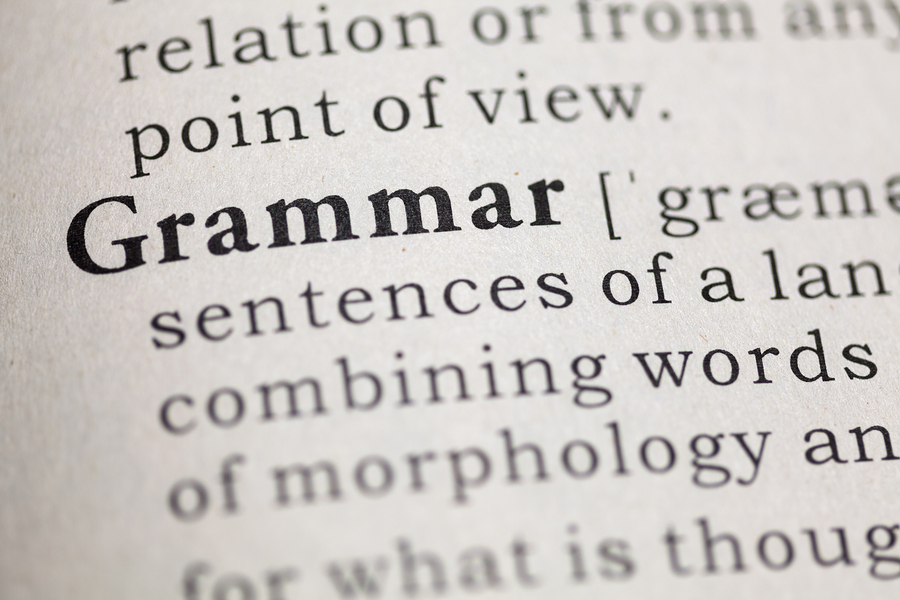I have a number of personal friends and long-time acquaintances who are talented voice-over artists. They work in radio, television and narrate audio books.
I frequently get together with three other guys who are all professional speakers and radio people. I sound like Elmer Fudd when I am around those guys.
So, with this background, no wonder I am disturbed when I see the increased use of “text-to-speech” software, which converts a Word file, PDF or even an email to voice. Software like Ivona, NaturalReader and Amazon Polly are actually quite amazing. Companies invest heavily to make the end product as good as possible. And we are not just talking about English. In time, most written languages will have text-to-speech software available.
If you watch informational or news videos on YouTube, you will notice the growing number employing text-to-speech software. The technology is relatively inexpensive and will pay back the cost in a short time compared to hiring professional announcers.
So, writers, you aren’t the only ones whose livelihoods are threatened by technology.
Four years ago, I wrote a blog post in this space about “Robo-Writing” and highlighted one software developed at Northwestern University near Chicago.
Narrative Science was a collaborative effort between the Medill School of Journalism and the Northwestern computer science department. They started by having software create a news story simply by scanning a typical baseball box score.
If you think the influence of computer generated news stories is a passing fancy, here is a list of companies using Narrative Science software. And they are not the only ones doing this.
Auto-writing technology isn’t going away; in fact it will only grow in importance.
The expanded use of sophisticated software and even artificial intelligence has created a significant threat to technical non-creative writers. Newsrooms and news services must do things faster and cheaper than ever before and hiring someone to write a fact-based overview of some government meeting is not something you want to spend a lot of money to have written.
The use of speech-to-text has been around a long time, so those whose job was to write down what others said are becoming an endangered species.
Just as machines have taken over many of the manual functions in manufacturing and computers are replacing people in so many ways, if you want to write as a profession, make it creative. Make it snap. Build an experience for the reader.
Book authors now have another competitor in the marketplace, and it isn’t the tens of thousands of other writers vying for attention. This competition now owns the category of the information-giving, fact-reporting style of writing, which does not need to be creative. It’s the type being replaced with software.
To be honest, I simply want to know the weather forecast for today, if it’s going to rain or not and what I should expect. I don’t need an esoteric musing on the meaning of a cloudy day. Robots get to the point.
Yeah robots.
But creative writers need to be just that…creative. Manuscripts need to be honed and inspired, not cranked out like some manufactured word machine. We now have machines to do that kind of writing.
We can all discuss whether a computer will ever write a book. My prediction is it will happen sometime in the near future and no one will know the difference, until it is revealed after getting good reviews and the author invited to appear on television interview shows and a laptop shows up in the green room.



 Grammar and the Singular “They”
Grammar and the Singular “They”

Truly scary!
I don’t know, John. Flip your thinking around and see it as a challenge to improve, to keep ahead of the “threat” the technology presents. As polished as it may be, an algorithm can never truly replace the creative neurons flying around in our heads.
Now, self-driving cars? Yeah, that’s scary! 😉
I’m with you, Damon. I wouldn’t expect AI to produce anything that wasn’t formulaic in a well-defined genre, and that’s not what I write or read.
Self-driving cars might be safer to share the road with than texting teenagers (and those old enough to know better), but no tech is glitch-free. That can be lethal even at city speeds.
As someone whose voice is digitally recorded in the archives of Talking Dog Studios, my attention was drawn to the first sentence of this very interesting post. Prior to the recording, my talent agent explained that the speed of my voice might be increased or decreased depending on the requirement of the client and that I might never know where my voice was used unless it appeared on a pay statement. Considering that my voice sounded abnormal to my ears when I first heard it played back in a grade school theatre production, I was all for changing its tone. As for thinking what nefarious reasons my voice could be used for, I just handed it over to the Lord and that was that. Although I’ve never received any money from Talking Dog Studios for the use of my voice I like to think that it carries more emotion and inflection than a computer. I could be wrong.
I think over time many people get used to less-than-great things instead of great things. Works for everything from music to food and writing to clothing.
There are many types of writing which simply don’t need a human touch, but many still do. But I can’t say it will always be that way.
Newspapers and magazines were the crucible of great writing for so long. When those media start to disappear, replaced by social media and nonsense online info, I am not sure there will be anything left to go back to as readers become “addicted” to a different kind of writing.
However, a great opportunity remains for anyone who can write well. I could still imagine the first kind of books which might be “robo-written” will be those adhering to a formula.
Hmm. I wish I could disagree, but I know you’re right.
Ah well, even a disintegrating society needs its voices crying in the wilderness. It ups the ante as we now need to not only know how to write well, but also write to reach a deafened generation, and, above all, make sure we have something to say that angels – and robots – desire to look into.
Dan, your opening line there is spot-on. I have a sign on my office wall this is taken from the opening line of one of my favorite business books. “Good is the Enemy of Great.”
Dan, thanks for being a ray of sunshine here…….so what do we do about it? I put my heart into my writing and would argue that robots have no heart…..then again, like others have said, you are probably spot on.
It’s a sad state of affairs when the public becomes accustomed to less than excellent fill-in-the-blank. Mediocrity becomes the new curve. The question is, will people demand more for their brain? (at some point?) Or will we/they be like the frog in the pot slowly warming up until it’s too late?
All the more reason to practice our craft and write as well as we can, and then do better. But no stress, right?
As I read this article I couldn’t help but think about the ebooks and websites I’ve seen promoting “Write a book in a week”, “How to write a Best Seller in 24 hours”, etc. etc. Maybe you don’t have to be made out of circuits and wires to write like a robot – this flesh and blood author can’t even imagine writing at those speeds – or what I might produce!
Personally I think that this can only be a good thing for writers. Robots can’t create truly great prose any more than living things can evolve from dead matter. That means that robots will forever be relegated to helping people, without having the ability to replace their creativity. Or at least one can hope . . .